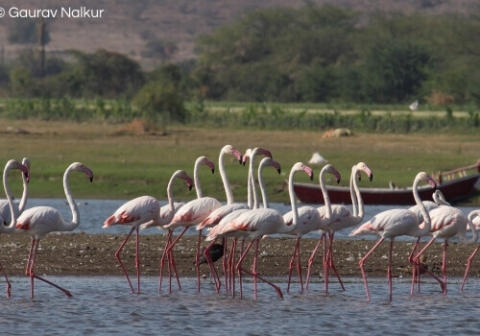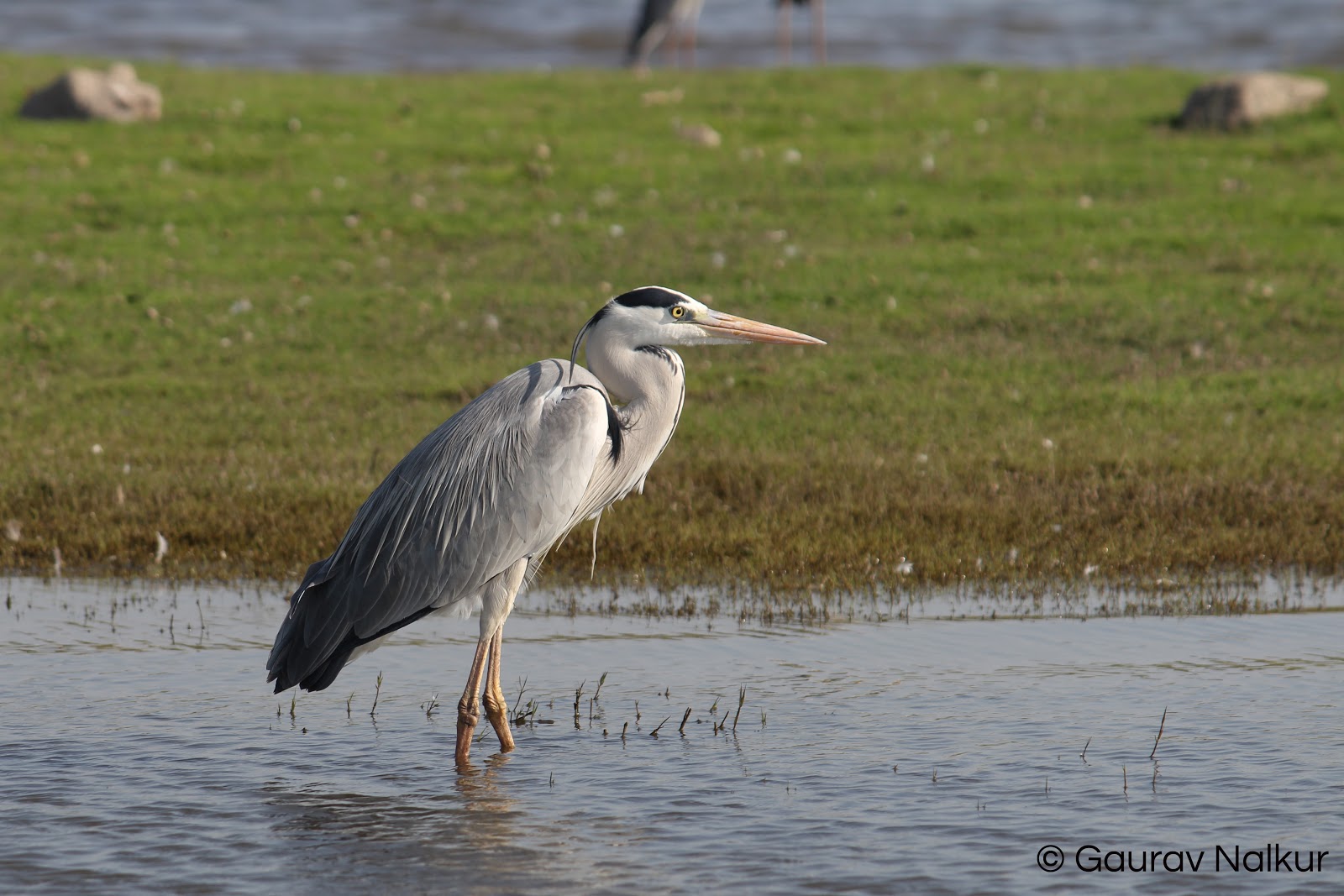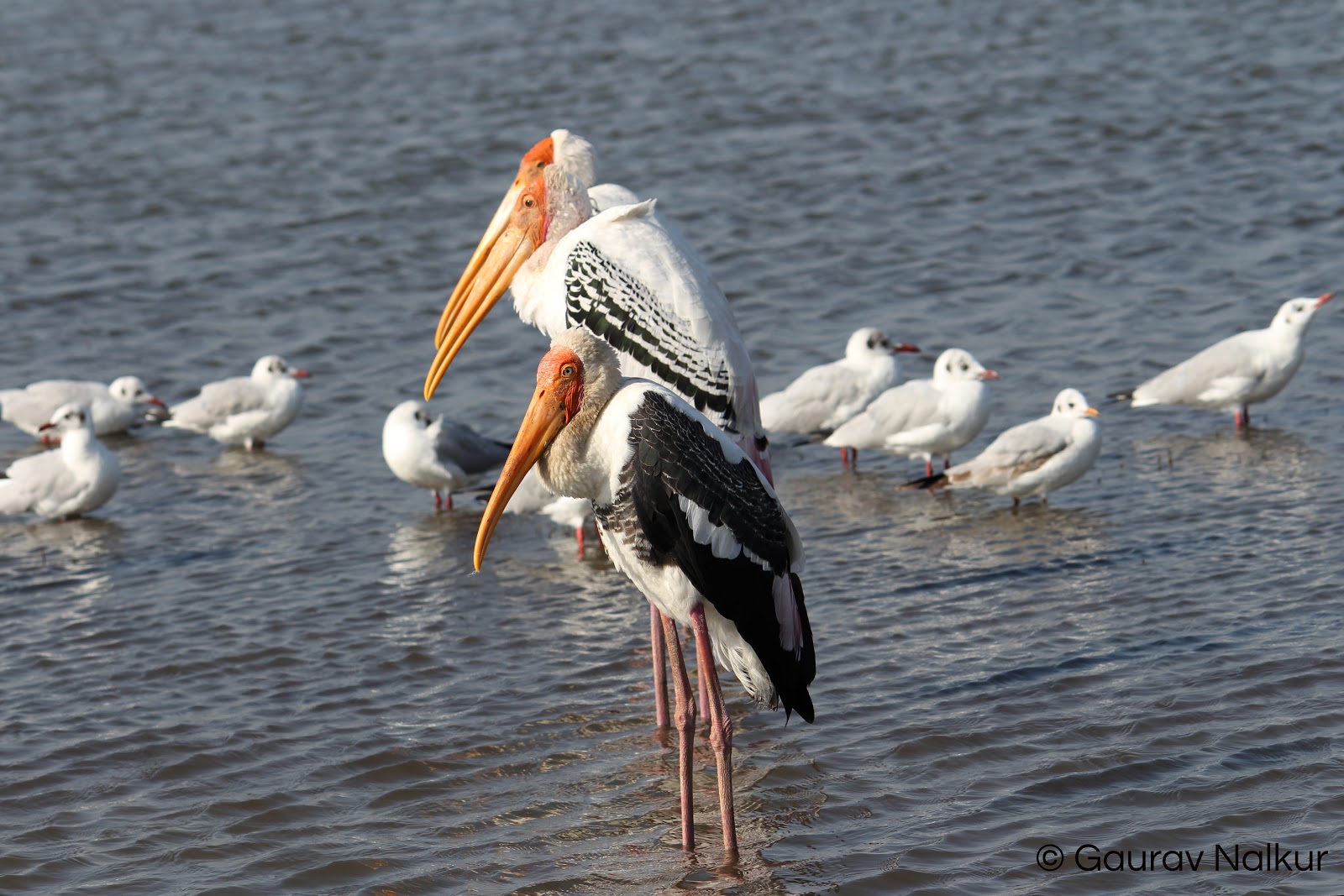
Bhigwan is a town on the border of the Pune, Ahmednagar, and Solapur districts of Maharashtra, India. The lifeblood is the reservoir formed by the nearby Ujjani Dam, built on the Bhima River. Among birdwatchers, Bhigwan is famous for the birds this dam attracts.
For many years, birdwatchers from Pune have visited Bhigwan, mainly for the flocks of flamingos it attracts. The soil near the backwaters is usually muddy and marshy, making it almost impossible to approach the water by foot.
This is where the guides of Bhigwan have come in. The local bird guides of Bhigwan are a relatively recent addition to this scene (being in operation for about 10-15 years).
Conversing with a few of the guides, I found that many of them started off as fishermen, catching the introduced Tilapia in the Ujjani backwaters. These fish were either eaten by the locals or sometimes sold in nearby markets.
As time went on, birdwatchers and photographers began hiring them to take them out onto the water with their fishing boats. Slowly, these fishermen began learning about the birds found there (usually through self-education or being taught by some of the friendlier birders), and eventually shifted their business entirely towards being bird guides.
Today, many of these guides own homestays in the nearby village of Kumbhargaon, which lies along the water. As their businesses have grown, they have started employing local youth to help out, often training them to identify birds. A few of the guides even fulfil a smaller niche of scouting out locations for rarities that visit the waters or the adjoining grasslands.

In the years that these guides have been operational, the overall situation of Kumbhargaon has improved. Awareness about the importance of conserving birds has grown, and there has been a reduction in the hunting of waterfowl for sport or for food.
Of course, all is not rosy. With an increase in facilities, Kumbhargaon now sees a flood of tourists in the winter months. Many of them, not being entirely ecologically aware, do demand cold drinks (often sold in plastic bottles in India), or litter. The local guides of Kumbhargaon are doing their bit by having organized clean ups, as well as severely discouraging littering.
In addition, illegal sand mining in the area has seen two major consequences. The first, more direct consequence, being the destruction of several small islands in the waters. These little islands are often used as nesting grounds by Small and Oriental Pratincoles, as well as some of the other resident birds.
The second consequence of the sand mining has been that as the lake becomes wider, it has become more and more difficult for these boat guides to row from one shore to the other, leaving them to install small diesel outboard engines on their boats. However, the increase in tourist activity has led to a decrease in the sand mining, as well as more people being aware of the activity and complaining to the proper authorities.

With very little outside influence or help, the bird guides of Kumbhargaon have set up sustainable homestays, provided employment to many in the village, increased environmental awareness, and reduced many harmful activities. With the exception of a few points, it is definitely an example many need to follow.
